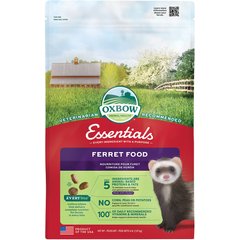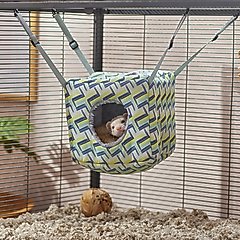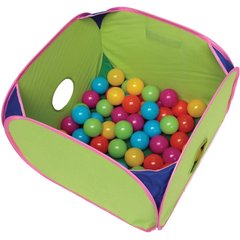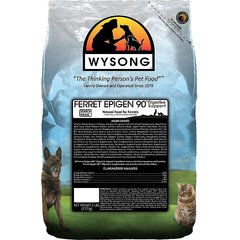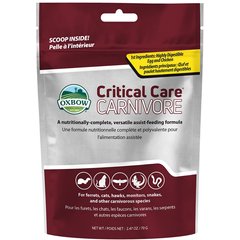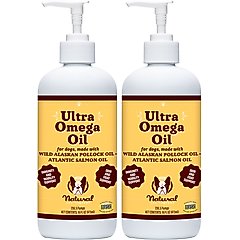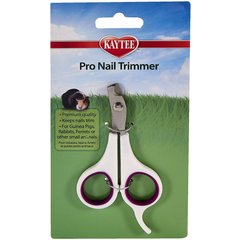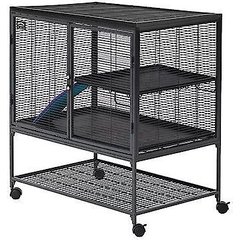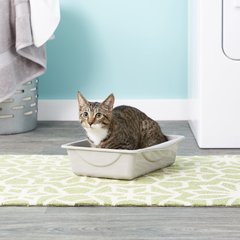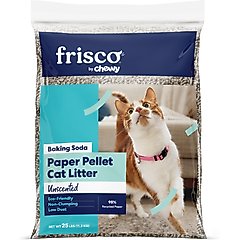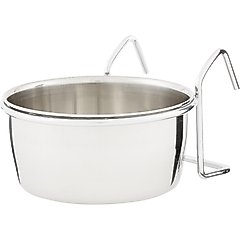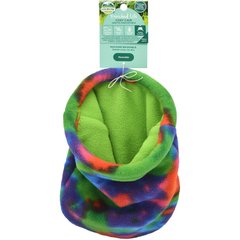How Much Do Ferrets Cost?
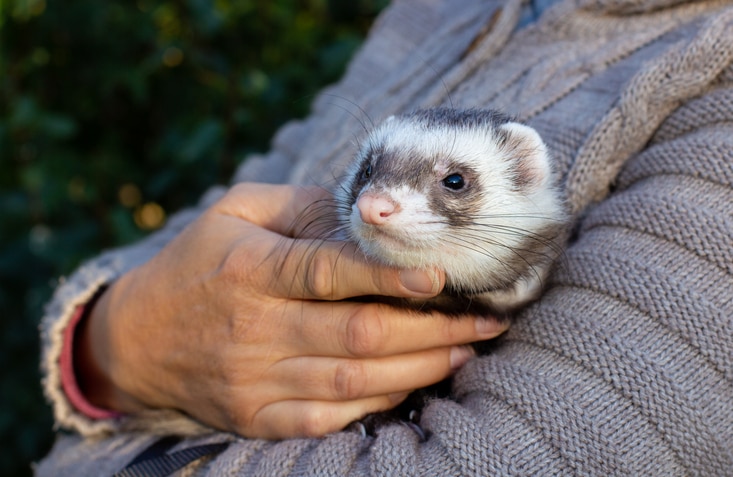
Photo by Irina Vasilevskaia / iStock / Getty Images Plus
Ferrets are playful, curious companions with big personalities. Some even have a charming habit of hoarding toys, socks, and other little treasures, says Melissa Braukman, director of the Oregon-based Willamette Valley Ferret Shelter.
But before bringing a ferret home, it’s important to consider the long-term costs. If you’re wondering how much ferrets cost, you’re in the right place.
Budgeting for your pet ferret is a key part of responsible ferret parenting, and we’re here to break it all down for you.
Key Takeaways
- The initial cost of a ferret is about $350, depending on the breeder or shelter.
- Additional upfront costs include a cage, bedding, and toys.
- Ongoing expenses include food, litter, and routine vet visits.
- Budgeting for a ferret means preparing for long-term costs over a 4- to 6-year lifespan.
How Much Do Ferrets Cost?
Ferrets purchased from pet stores or local shops can cost upwards of $350, says Melanee Ellis, shelter manager at Lane Area Ferret Shelter and Rescue in Eugene, Oregon. However, there are more affordable options for acquiring a pet ferret, such as adopting from a ferret-specific rescue, a humane society, or a previous pet parent.
If you find a ferret out and about (they’re quite the escape artists), try to locate its pet parent before deciding to keep them.
How Much Does Ferret Care Cost?
We’ve broken down key pet ferret expenses—food, bedding, toys, safety-proofing, medical care, and pet sitting—so you can get a clear picture of how much it costs to care for a pet ferret. Costs can vary based on your location, whether you choose secondhand supplies, and how much you’re comfortable spending on items.
Recommended Products
Food and Treats
Ferrets are obligate carnivores, meaning they need a meat-based diet to get essential nutrients like taurine, which supports heart health, vision, and the immune system. Although there are fewer commercial food options for ferrets than for other pets, reputable brands such as Oxbow and Wysong provide well-researched, veterinarian-formulated ferret diets that have the high protein and fat content ferrets need.
Recommended Product
Expect to budget $6 to $9 per pound for a proper ferret diet. Ferrets typically weigh 1.5 to 4.5 pounds and eat 5%–7% of their body weight per day, which amounts to 1.2 to 5 ounces of food daily, split into eight to nine small meals. Based on this, the daily food cost ranges from about a half-dollar to $2.80, depending on the ferret’s size and dietary needs.
Ferret parents may supplement some meals with ferret soups, which are blended meals made from meats, organs, bone broth, and high-fat ingredients like egg yolk or salmon oil. These nutrient-rich meals provide extra support for ferrets recovering from illness or medical procedures.
Ellis recommends Critical Care Carnivore, an easy-to-prepare option. “It’s an excellent supplement to get your ferret used to eating a soup-type food if they get ill,” she says.
Recommended Product
For treats, ferrets love fatty oils, according to Ellis and Braukman. Ellis says her ferrets go crazy for Ultra Omega Oil. “I put some on their belly for them to lick off, and while they’re busy, I clip their nails,” she says.
Recommended Products
Habitat and Cage
Ferrets need plenty of time outside their cage for exercise and play to stay happy and healthy, Ellis says. However, when they can’t be supervised, they require a spacious habitat or pen where they can romp around. While the minimum recommended cage size for one to two ferrets is 2 square feet, Braukman says providing a larger space to accommodate separate areas for sleeping, eating, and using the litter box is always better.
“Cages are not created equal—the quality of a cage or habitat is not always the same,” Braukman says. Wood cages aren’t recommended because they can absorb odors, but if the bars of a metal cage are too flimsy, your ferret might try to squeeze through and get stuck.
Ellis likes to house her foster ferrets in one- or two-story metal MidWest Critter Nation cages (more than $200), which can house between one and five ferrets. “They come apart easily and are very easy to clean and move around,” she says. Whether a ferret will accept a new roommate depends on their personality.
Recommended Product
Other habitat expenses include:
- Litter ($10–$15/month) and a litter box ($5–$25): A standard cat litter box will work. If you have male ferrets, the box should be big enough to fit all four of their feet inside, or they might refuse to use it. Ellis and Braukman recommend non-clumping pellets rather than clumping litters. “Ferrets like to snorkel in their litter, and clumping litter can get into their nose and mouth and cause problems,” Ellis says.
- Food and water dishes ($5–$20): Because ferrets enjoy rearranging their habitat, Braukman recommends securing their food and water dishes to the side of the cage.
- Bedding (generally $10 or less): Fill areas outside the litter box with cloth blankets and bedding, and hang hammocks for additional sleeping spots—ferrets love hammocks and sleeping bags or sleep sacks. You can also repurpose old T-shirts, sweatshirts, pillowcases, or infant blankets. Braukman recommends washing bedding once a week with scent-free detergent.
Recommended Products
Toys, Accessories, and Enrichment
Ferrets are playful, but keeping them entertained doesn’t have to be expensive. “To save money, you can wash toys to make them feel like new to your ferret,” Ellis says. Clean, repurposed cat or dog toys also work, and many favorite ferret toys can be made from household items. Some ferret favorites include:
- Wooden or cardboard hide boxes for stashing found treasures
- Dig boxes filled with non-instant rice, dry noodles, shredded paper, or beans. Hide toys inside for foraging!
- Balls to chase, including ones that jingle
- Fishing pole toys to build leg strength
- Tunnels or similar repurposed options, such as clear dryer hose tubes. “You can watch them turn around in the tube,” Ellis says.
- Ferret playpen, stroller, or harness and leash for supervised outdoor time. Ferrets should never be left outside unattended.
Ferret-Proofing Your Home
Your home might seem safe enough, but any experienced ferret parent will get on their hands and knees and quickly locate the trouble spots your ferret is sure to find. “If they can get their head in, they can usually get their whole body through,” says Ellis of any gap in a cabinet, a mattress spring, or even a crack leading outdoors.
Use child locks on cabinets, gates for sectioning off rooms, and plywood or chicken wire to secure the bottom of your couch, Braukman says. Still, you’ll be surprised to see what your ferrets get into—be ready to adjust once they’re home.
Recommended Product
Ferret First Aid and Veterinary Care
Veterinary care is far from a fun expense, but it’s a necessary one. With proper veterinary care, diet, and exercise, Ellis says she has seen ferrets as old as 8, 9, and 10 years old, though the average lifespan of a ferret is 4 to 6 years. They should see their vet one to two times a year, or more if they have a medical condition. Depending on where you live, routine exotic vet appointments may cost between $50 and $100.
Expenses can quickly add up with necessary vaccinations, such as rabies and distemper shots, which typically cost $15 to $30 each. If your ferret isn’t already spayed or neutered, that can cost an additional $100 to $300.
“Unfortunately, ferrets have a lot of health issues,” Braukman says. Many ferret parents set aside from $100 to more than $1,000 a year for emergency visits, which can include diagnostic testing for everything from common health issues, such as cancer, to ingestion of foreign objects.
Ferret Sitting or Boarding
If you enjoy traveling, you’ll need to consider alternative care for your ferret. Boarding services for ferrets typically range from $10 to $90 per day, depending on the facility and the level of care provided.
How Much Ferrets Cost per Year in Total
The costs below are the bare minimum for a healthy ferret. Ask any seasoned ferret parent, and they’ll tell you the real expenses often go far beyond the estimates below. Unexpected vet bills can add up quickly, making ferret parenthood pricier than it first appears. Some ferret parents set aside emergency funds, while others opt for small animal pet insurance, which typically runs between $25 and $50 per month.
| Expense | First-Year Estimated Cost | Annual Estimated Cost After First Year |
|---|---|---|
| Adoption or purchase | $120 to $350+ | 0 |
| Habitat | $230+ | $120 to $300 |
| Toys | $0 to $75 | $0 to $75 |
| Food | $164 to $1,012 | $164 to $1,012 |
| Vet Care | $180+ | $150+ |
| Boarding | Up to $90/night | $0 to $90/night |
| Estimated total | $694+ | $434+ |
Attributions
This content was medically reviewed by Barri Morrison, DVM, Chewy veterinarian.

